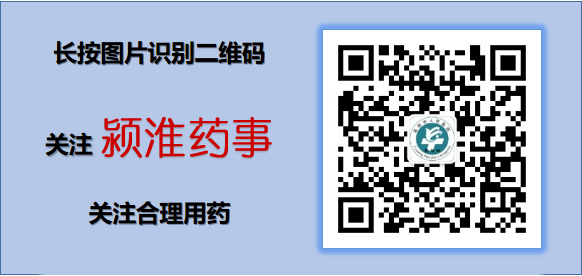 Click the blue text above to follow us!
Click the blue text above to follow us!
Rou Gui (肉桂, Cinnamon) is a commonly used medicinal herb in daily life. Due to its rich and spicy aroma, many people use it as a spice in their kitchens. Whether used in marinated meats or stews, Rou Gui can effectively eliminate fishy odors and enhance flavors. However, its greatest value lies in its medicinal properties in Traditional Chinese Medicine (TCM).

Rou Gui (肉桂, Cinnamon), also known as Yu Gui, Mu Gui, Jun Gui, and Tong Gui, is the dried bark of the Cinnamomum plant from the Lauraceae family. It is harvested in autumn and dried in the shade. The bark harvested in April to May is called Chun Gui and is of inferior quality, while that harvested in September is called Qiu Gui and is of superior quality. It has a spicy and sweet flavor and is considered very warming. It enters the Kidney, Spleen, Heart, and Liver meridians, providing benefits such as warming the Yang, guiding fire back to the source, dispelling cold, alleviating pain, and warming the meridians. Clinically, it can be used for conditions such as impotence due to cold in the uterus, cold pain in the lower back and knees, shortness of breath due to Kidney deficiency, floating Yang, dizziness, red eyes, cold pain in the abdomen, vomiting and diarrhea due to cold, abdominal pain from cold hernia, and dysmenorrhea or amenorrhea. The recommended dosage for decoction is 2-6 grams, and it should not be boiled for long. For powdered form, the dosage is 1-2 grams per time.

Rou Gui has several varieties, including Guan Gui, Qi Bian Gui, and Ban Gui. The most effective is Ban Gui, followed by Qi Bian Gui, while Guan Gui has slightly weaker medicinal properties. One can choose based on personal conditions. The best Rou Gui comes from Vietnam’s Qinghua and Guangxi in China, characterized by a fine surface, thick bark, heavy weight, non-fractured, high oil content, strong aroma, sweet with a slight spiciness, and minimal residue when chewed. Rou Gui is first recorded in the Shen Nong Ben Cao Jing (神农本草经), classified as a superior herb, divided into Mu Gui and Jun Gui. The text states that Mu Gui “is used for cough, reverse qi, throat obstruction, benefits joints, and tonifies qi,” while Jun Gui “is used for various diseases, nourishes the spirit, harmonizes complexion, and is a precursor to all medicines, promoting longevity and a radiant complexion with prolonged use.” This indicates that Rou Gui has both supportive and dispelling properties.
Rou Gui is first recorded in the Shen Nong Ben Cao Jing (神农本草经), classified as a superior herb, divided into Mu Gui and Jun Gui. The text states that Mu Gui “is used for cough, reverse qi, throat obstruction, benefits joints, and tonifies qi,” while Jun Gui “is used for various diseases, nourishes the spirit, harmonizes complexion, and is a precursor to all medicines, promoting longevity and a radiant complexion with prolonged use.” This indicates that Rou Gui has both supportive and dispelling properties.
Main
Indications
Symptoms

1. Insufficient Kidney Yang, impotence, cold uterus, fear of cold, cold limbs;
2. Cold in the lower jiao with floating Yang, presenting as heat above and cold below;
3. Cold pain in the abdomen due to Yang deficiency, poor appetite, and loose stools;
4. Dysmenorrhea, amenorrhea due to cold and blood stasis, abdominal pain from cold dampness, and low back pain;
5. Yin abscess, boils that do not rupture or take a long time to heal.
Notes
Considerations
Items
1. Rou Gui is spicy and warming, thus should be avoided by pregnant women and those with excess heat or blood heat. It is not suitable for those with Yin deficiency and excess fire.
2. Rou Gui has a spicy, dry, and warming nature, effective for warming the middle and dispelling cold. Those with Yin deficiency and excess fire, or heat diseases damaging fluids, should avoid it.
3. Should not be used with Chi Shi Zhi (赤石脂).
4. During treatment, avoid cold, raw foods, spicy, greasy foods, and alcohol.
5. Children should use it under the guidance of a physician and adult supervision.


Note: In traditional Chinese dietary culture, some medicinal herbs are widely consumed as food, meaning they serve both as food and medicinal substances (i.e., food-medicinal substances). According to documents released by the National Health Commission and the State Administration for Market Regulation, Rou Gui can be used as both food and medicine within specified limits and dosages. Although Rou Gui has a unique aroma and many people enjoy using it as a seasoning, it is still a medicinal herb and should not be used indiscriminately.
The use of medicinal herbs must be based on syndrome differentiation and treatment, and should be guided by a professional TCM practitioner. Self-medication or blindly following folk remedies and advertisements is not advisable.

Image source: Internet (please delete if infringing)
Editor: Wang Xiaoying
Li Xiayan Zhao Linlin Liu Ying Tu XingxingProofreader: Wu DongChief Editor: Wang XiaojuanNO.1Previous Reviews
What to do if you have fatty liver?
How much do you know about the contraindications of herbal medicine?
Beware of drug photosensitivity reactions
The benefits of tonifying herbs—Huang Qi
Official WeChat account of the Pharmacy Department of Fuyang People’s Hospital
—Thank you for your attention!


